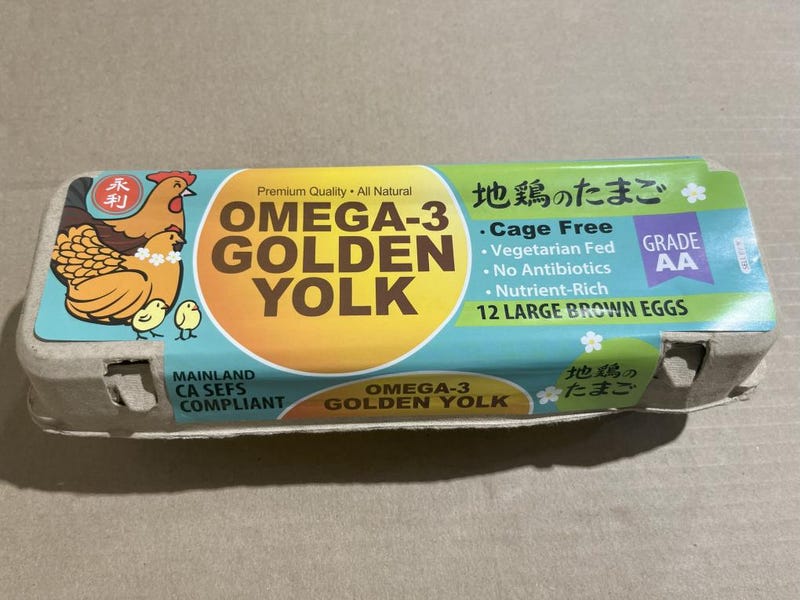Nearly 100 people across more than a dozen states have become ill due to salmonella infections linked to eggs, according to the U.S. Centers for Disease Control and Prevention. So far, there have been 18 hospitalizations linked to the outbreak.
This Wednesday, Country Eggs, LLC, of Lucerne Valley, Calif., recalled eggs linked to the infections. These eggs were large, brown, cage-free “sunshine yolk” or “omega-3 golden” that were packaged in retail cartons with the names Nagatoshi Produce, Misuho and Nijiya Markets and sold from June 16 through July 9 with sell by dates of July 1 through Sept. 18. Cartons covered in the recall had the code CA 7695.
As of Thursday, 95 cases were reported in 14 states.
A timeline from the CDC shows that people began reporting illnesses on July 1. Reports continued to come in through at least Aug. 3. Cases have been reported in Arizona, California, Florida, Georgia, Hawaii, Iowa, Minnesota, Nebraska, Nevada, New Mexico, New York, North Carolina, Pennsylvania and Washington. No deaths have been reported.



“The true number of sick people in this outbreak is also likely much higher than the number reported,” said the CDC. “This is because many people recover without medical care and are not tested for Salmonella.”
Salmonella are bacteria that cause infection. Symptoms of salmonella infections start within six hours to six days of swallowing the bacteria and can include diarrhea, fever, and stomach cramps. While most people recover without treatment in around one week, children under age 5, people with weakened immune systems and adults over age 65 are especially vulnerable to complications and severe illness.
According to the CDC, anyone who has the recalled eggs should immediately throw them away. Or return them to where they were purchased. It also recommends washing items and surfaces that may have touched any recalled eggs with hot, soapy water or a dishwasher. Businesses are advised to not sell or serve recalled eggs and to wash and sanitize surfaces that may have come in contact with them.
If people develop symptoms such as a fever higher than 102 degrees, diarrhea for more than three days, bloody diarrhea, severe vomiting, inability to keep liquids down and signs of dehydration, they should contact a doctor.
